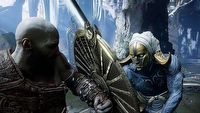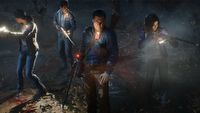The Time When Kojima Trolled Me One Time Too Many
It's been seven years since the release of Metal Gear Solid 5, a game I've been anticipating like salvation. I finally played it, and I still can't forgive Kojima for one thing. He trolled us, the players, one too many times.
3
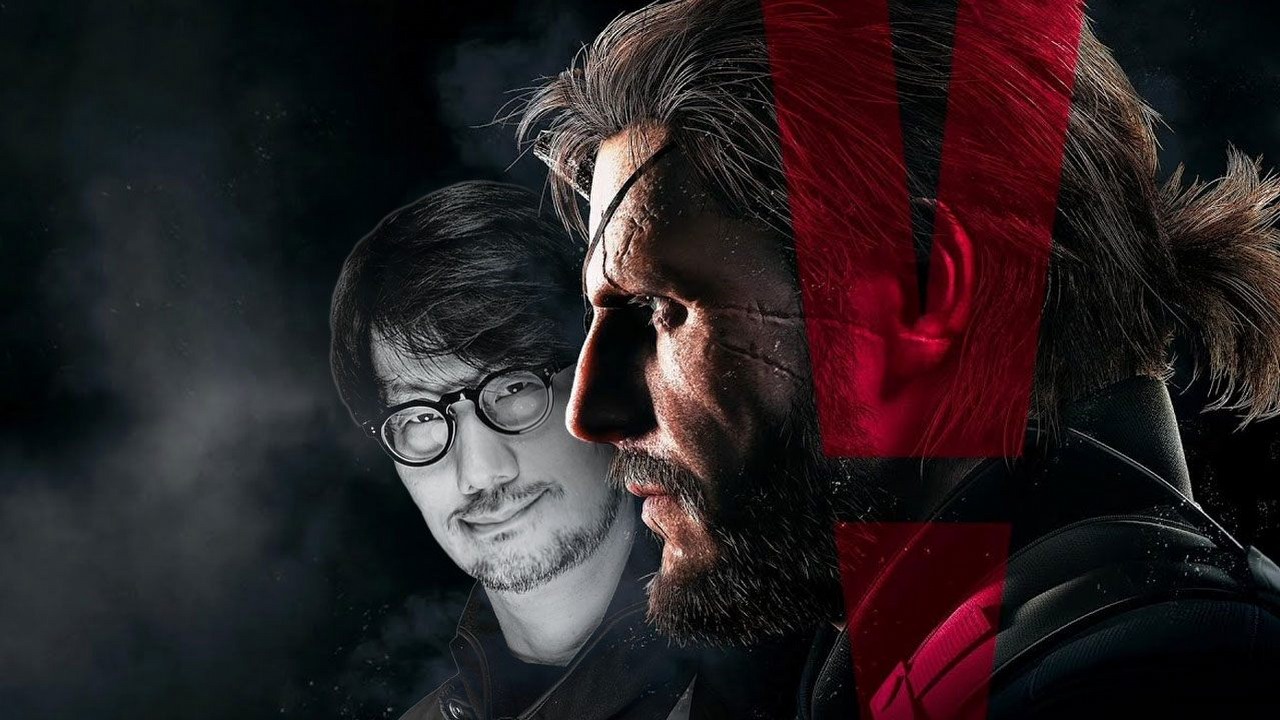
Kojima wouldn't be himself if he didn't make things confusing. Usually, spoilers don't bother me that much, I really can live with them and enjoy whatever I'm playing or watching anyway. One specific spoiler related to MGS 5, however, made almost completely disinterested in the game that I used to anticipate with the same kind of excitement as Pillars of Eternity, i.e. even greater than The Witcher 3 (it was 2015). I generally like this iconic series of quirky stealth games, but over the years I have developed a grudge against the idea that Hideo Kojima insisted on in The Phantom Pain. I recently forgave MGS V – I completed this game properly and let me tell you one thing. It's a great stealth game, but I still think the Japanese genius went overboard and decided to fool us one time too many.
Some of you probably know what's this all about, but since it's not all of you...
BEWARE! LOW-PASSING SPOILERS. THIS WHOLE THING IS A SPOILER!
Metal Gear Solid: Revenge of the Sith
Quick explanation (if that's possible with MGS): the series has two, maybe three, main characters. The beloved Solid Snake, who debuted in Metal Gear on MSX and led the cycle through the third dimension in Metal Gear Solid, all the way to the grand finale in Metal Gear Solid 4 (in MGS 2 he passed the baton to Raiden, but players were divided... to put it mildly). Solid was a clone of Big Boss (aka Naked Snake, aka Jack, aka John...), who he acted as a villain in the first still pixel Metal Gears.
Here's the chronological order of the Metal Gear series (only canon)
- Metal Gear Solid 3: Snake Eater (Main Character: Big Boss)
- Metal Gear Solid Peace Walker (main character: Big Boss)
- Metal Gear Solid 5: Ground Zeroes (main character: Big Boss)
- Metal Gear Solid 5: The Phantom Pain (main character: sort of Big Boss)
- Metal Gear (main character: Solid Snake)
- Metal Gear 2: Solid Snake (main Character: Solid Snake)
- Metal Gear Solid (main character: Solid Snake)
- Metal Gear Solid 2: Sons of Liberty (main character: Solid Snake, then Raiden)
- Metal Gear Solid 4: Guns of Patriots (Main Character: Solid Snake)
- Metal Gear Rising: Revengeance (main character: Raiden)
However, when we got to know the beginning of the fate of Solid's "father" in MGS 3: Snake Eater, we probably liked him even more than the iconic clone. He was more human and emotional, and in addition, we guided him through the most transparent and best-balanced installment of the series – which still had some wild moments. Then we followed the beginning of his fall from grace in the PSP Peace Walker. Finally, the trailer for Metal Gear Solid V saw the light of day and knocked everyone off their feet. The new engine looked amazing, the story promised to be dark, disturbing, even uncomfortable (literal violence is one thing, but there were also torture scenes involving Big Boss's aidies, kids armed with rifles and elements of horror) – it was wicked.
Enigmatic but mesmerizing scenes heralded the fall of the hero we fell in love with. Something like Revenge of the Sith, just done right (in fact, when you think about it, Metal Gears is divided into two trilogies similar in structure to Star Wars – the first tells the story from the inside and is about kids, and the prequels are about fathers' sins and transformation of the hero who could fix the world into a villain). A story where people turn into monsters, where they mutilate and are mutilated.
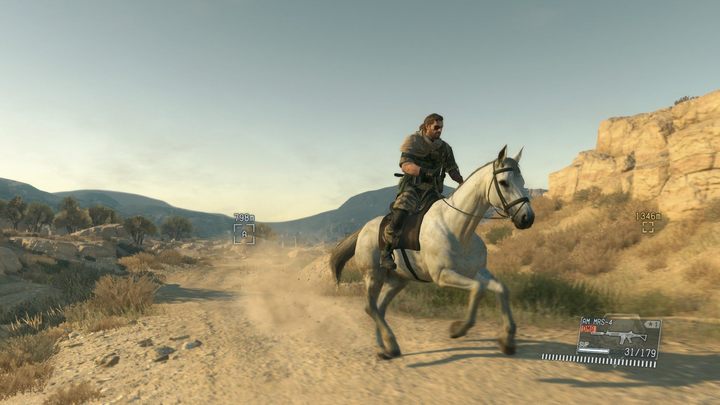
I don't remember how many times I've watched all those lengthy trailers driven by songs that seeped into the subconscious (Sins of the Father by Donny Burke, Nuclear by Mike Oldfield and Not Your Kind of People by Garbage). And after the premiere, before I could even play it, I found out that , we play as the real Snake only in the prologue, i.e. Ground Zeroes. He gets injured when he has to defend the MSF base (the mercenary unit he was setting up) and falls into a coma for nine years. In the actual game, The Phantom Pain set nine years later, it eventually turns out that we play the Big Boss' doppelganger, the Medic who lunged to shield Snake from an explosion with his own body. The clone was "tweaked" to hide Naked Snake's actions from everyone, entering the fray as Venom Snake. It's all a bit tangled, but take it easy, even lore experts get lost in these things sometimes.
I didn't buy it back in the day and I don't buy it now, and no amount of ideological talk from Kojima himself, nor from the squad of YouTube apologists will change it (another thing is that their videos and analyzes are fun to listen to – I simply disagree with them: it wasn't a brilliant move by the creator, it was simply a huge stretch). This idea was unnecessary and ill-conceived.
Attack of the clones
First and foremost, Kojima could have just skipped it altogether. It really could have been a less confusing idea, a more straightforward story about how Big Boss crossed a certain line, beyond which only a severe punch from his son coould straighten things up (trained by himself) many years later, in the original Metal Gear. It would be a crippled, mad, but charismatic, saucy hero with good intentions, who succumbs to bitterness and a taste for avenging himself and his companions – in the hands of some writers it would be gold. It could have been a story to behold.
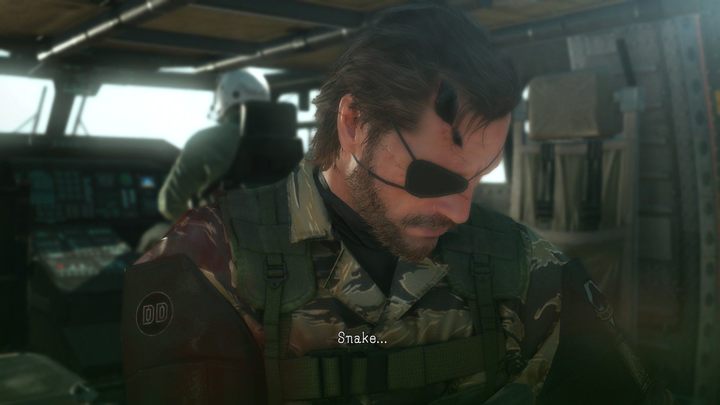
Currently, it's only sexy to truth-seekers who get phantom pain at the mere thought of what MGS V could have been, and leaves everyone else – including myself – in a state of sheer disappointment. Kojima focused on meta-narrative, full of understatements, leaving us with guesswork based on the tapes received after some missions – these recordings give some context to The Phantom Pain's action, and are actually often more interesting than the events in which we participate as Venom Snake.
In a way, we even get this whole Big Boss' fall – Venom walks into some gruesome situations and dilemmas (at some point he has to shoot his own soldiers who have contracted a nasty disease), and then Big Boss lets the Medic (one of the most faithful soldiers) became the unfortunate Venom Snake. What that really means is that he doesn't hesitate to manipulate the most devoted of his men for his own purposes – just like the opponents he fought and the politicians he despised (the US government has sacrificed Naked Snake's mentor, The Boss, and had Snake eliminate her to cover up their incompetence).
Still, this story would work better if it was the real Big Boss that passed the ordeals. A story told more directly – given the complexity of the entire series – would only benefit from it. Emotions would be bigger. We'd watch the actual hero getting dragged through the mud. Even if there wouldn't be a huge element of surprise. Even if not everything he does is wrong and you can find some justification for it (Venom can act like a hero for most of the game, he just keeps running into dead ends, and, well, he builds an army of mercenaries armed to the teeth...).
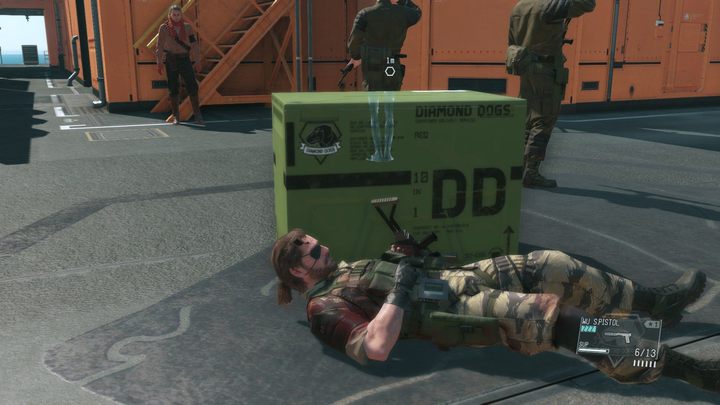
Simple stories also can be powerful and leave a mark on the psyche of recipients and culture. Kojima is a gifted guy. If he only wanted to, he could have delivered a bigger drama than writers from ancient Greece. The best, truly heartbreaking story is recounted on the tapes (Naked Snake could have come to terms with the manipulative frienemy, Major Zero, who has been with us ever since MGS 3, and had it not been for his disease caused by Skull Face, known from The Phantom Pain – and damn, that would have been a beautifully tragic, bitter story... which only comes in the form of a recording that we can either listen to or not).
Phantom pains
But Kojima had to have his own way. Sure, the ideology that comes along with this version explains the creator's decision – to some extent. Overall, Kojima wanted to say thank you for all these years and make us, the players be the Big Boss because we, along with Hideo and Snakes, built the popularity of the series, invested our time in it, and talked about it for years. He also wanted us to feel the action as much as possible (which is why Snake doesn't talk much and doesn't steal the show with charismatic personality and the one-liners that made us fell in love with him in Snake Eater and Peace Walker). But that idea doesn't really hold water. There's also the second line of defense – Phantom Pain combines the "new trilogy" with the original Metal Gear games about Solid.
In fact, the "missing link" that we got solves only one problem of previous installments – we learned how Solid Snake was able to beat the Big Boss twice, despite the fact that he kills him each time. There were simply two of them – one in Outer Heaven (Metal Gear's location), the other in Zanzibar (Metal Gear 2). The first time around, we eradicated the clone.
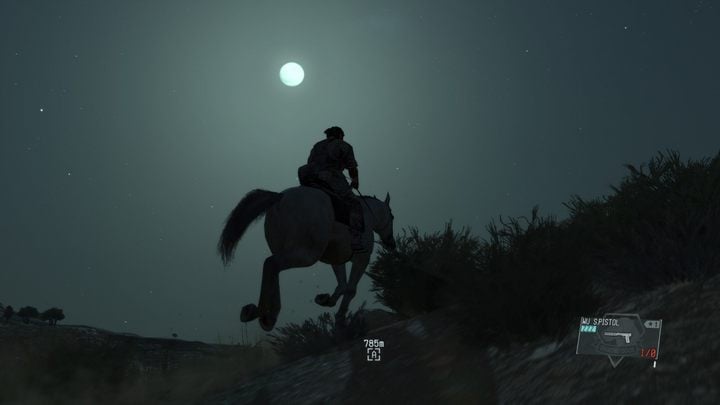
But okay. Let's assume for a moment that Kojima's idea for the Phanotm story wasn't that bad. This plot twist might have worked had it not been the very last thing to learn. But since it did, there wasn't enough room for it to make a real impact – it looked more like a cheap trick from a B-class movie, an "it was just a dream" moment, where the game tried to convince us that it was all much more clever than it seems. This is not the first and not the last game that decided to mess with our heads. System Shock, BioShock, BioShock Infinite or even Metal Gear Solid 2 from Kojima himself all had similar finales. All of these games – and many others – focused most of their drama around a single twist, changing the rules of the game and shedding completely new light on past events.
Only that in each of the outstanding examples above, we had some time to come to terms with the dramatic turn of events after the big reveal. BioShock, after finally showing us the truth, allowed us to accommodate the new reality, digest the situation before we went to the final confrontation. Hell, even Kojima himself could do it. Metal Gear Solid 2 had two grand twists, and they were so hard that the gaming community went bonkers. Firstly, after the prologue, we no longer played the public's favorite, Solid, but rather Raiden (who only gained esteem among players after Revengeance), and secondly, the entire story played with the sense of reality, both ours and the protagonist's. But the difference was that Kojima offered an expert guidance through this adventure, we had plenty of time to digest it all while playing, we didn't need to google for answers.
With Metal Gear Solid 5, it was the exact opposite. Haha, you've played a fake guy, see ya! One optional mission from the ending (46, for memory) can introduce this whole affair a bit earlier, but it still is too late. Sure, clues about this have been scattered throughout the trailers and the game itself (The Man Who Sold The World by Midge Ure is a song about a doppelganger, after all), but some convoluted foreshadowing doesn't justify the poor end effect. It only shows the creator's intentions.
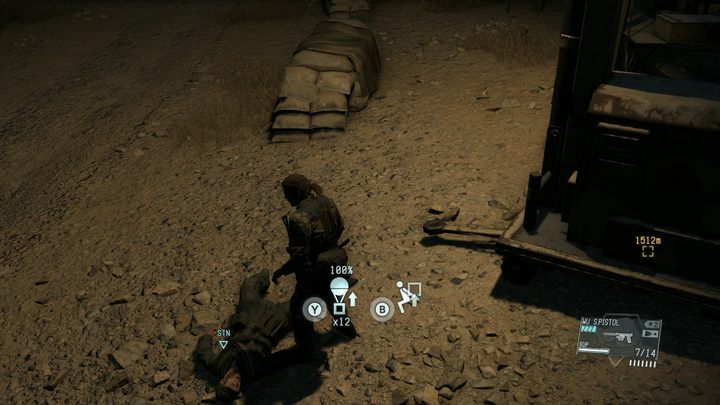
A phantom menace
This bad trolling rhythm might not be Kojima's fault, though. Players who combed the game files stumbled upon a map that contained the missing third chapter, entitled "Peace" – meanwhile, the game offered only two chapters. The Phantom Pain was supposed to feature an additional mission and a location referring to Lord of the Flies, tying the loose ends of the threads of several key characters. We could learn this from the disc containing additional materials, included with some editions. Konami is the most likely culprit responsible for cutting content from the game, pushing for an earlier release date and making Kojima's work so difficult that at some point, they almost completely removed him from the loop.
And who knows, maybe if he was given another six months to a year, he would bring things to a more satisfactory conclusion, making us somehow get over the shallow plot twist and Venom's identity? Maybe there was a revelation waiting in this third chapter that would make this fake Snake a legit hero, just like Raiden? In the second half of the game, Snake was a little more outspoken, which made it seem like he was starting to really become the character he was. Maybe then we would appreciate him as a fully fleshed-out character, not just the player's empty avatar. But Kojima seemingly miscalculated one thing – players wanted stories about specific, charismatic, bigger-than-life characters; exaggerated soldier figures (in the end, Raiden also falls meets these criteria); they didn't want an empty page to fill up themselves.
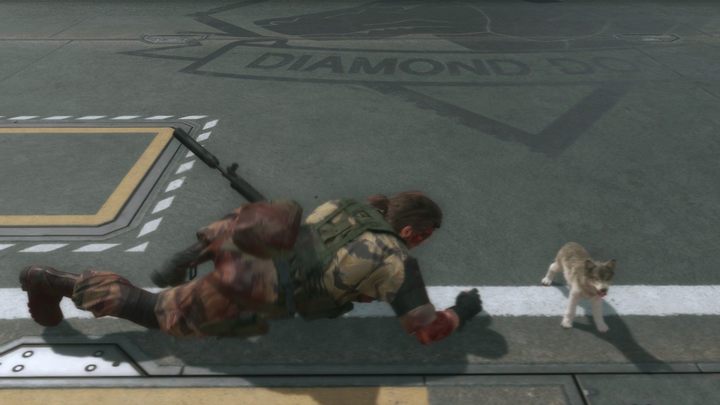
Perhaps even the development of the game could have gone smoother if he had told the story of Big Boss in a more direct manner, letting us play the hero we all wanted. In the end, we would feel the same kind of longing, maybe even a bigger one, if the game was better, more compelling, and more polished – without this unfortunate switching of characters. This kind of game would have generated a million interpretations of the story on Reddit and YouTube anyway. Because the pain after saying goodbye to an outstanding game, the awareness that there's nothing else left, could be much, much more powerful.
3

Author: Hubert Sosnowski
He joined GRYOnline.pl in 2017, as an author of texts about games and movies. Learned how to write articles while working for the Dzika Banda portal. His texts were published on kawerna.pl, film.onet.pl, zwierciadlo.pl, and in the Polish Playboy. Has published stories in the monthly Science Fiction, Fantasy, and Horror magazine, as well as in the first volume of the Antologii Wolsung. Lives for "middle cinema" and meaty entertainment, but he won't despise any experiment or Fast and Furious. In games, looks for a good story. Loves Baldur's Gate 2, but when he sees Unreal Tournament, Doom, or a good race game, the inner child wakes up. In love with sheds and thrash metal. Since 2012, has been playing and creating live action role-playing, both within the framework of the Bialystok Larp Club Zywia, and commercial ventures in the style of Witcher School.
Latest News
- Elite Mod lets you play the Tau faction in Warhammer 40K: Dawn of War 2
- Huge Marvel Adventures mod now with new superheroes, including Sentry
- Butcher's Summit, an impressive free diselpunk FPS, has been released
- Free FPS on Half Life engine gets big update
- On February 3, gaming history could change forever. Red Dead Redemption 2 one step away from a major achievement

